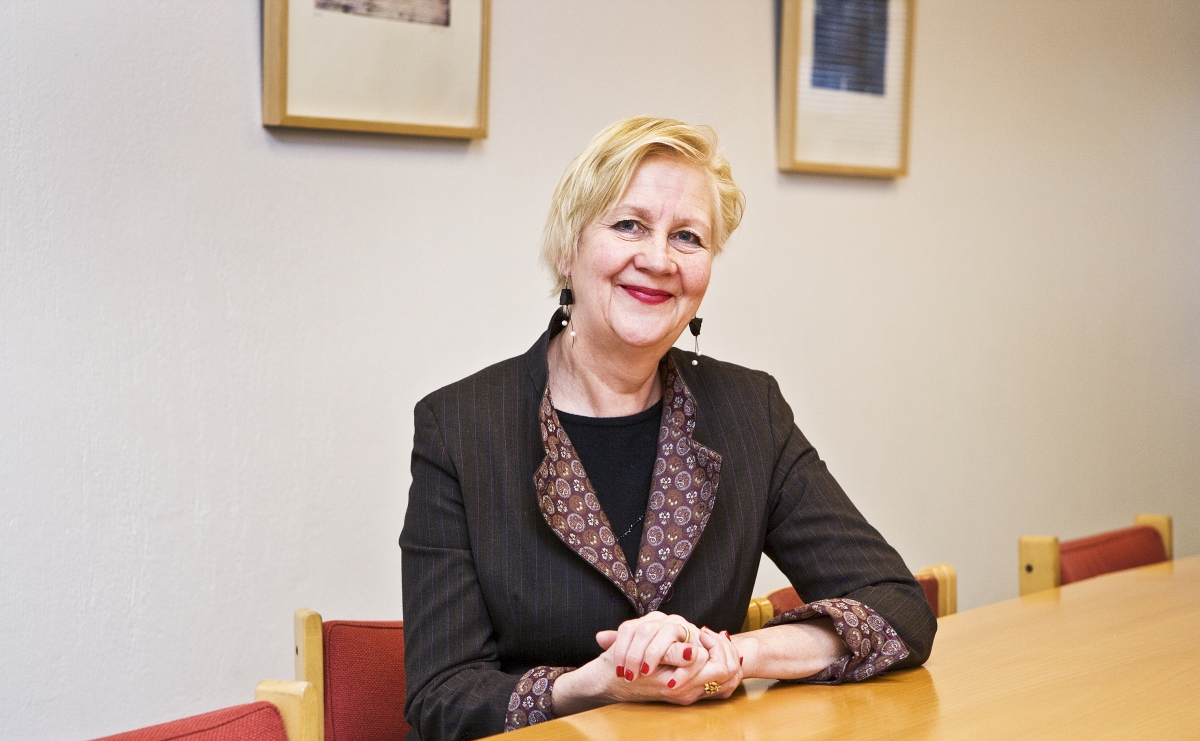Kristín Vala Ragnarsdóttir, Professor at the Faculty of Earth Sciences has been accepted to the Club of Rome, that works on identifying the most crucial problems that will determine the future of humanity.
The Club of Rome is an international association dating back almost 50 years. Members are leading personalities from politics, business and science; men and women who are long-term thinkers interested in contributing in a systematic interdisciplinary and holistic manner to a better world. The aim of the association is to identify the most dire challenges, evaluate alternative scenarios and opportunities as well as to communicate new insights and knowledge to improve the prospects for the future.
The Club of Rome publishes its findings in reports and, since its founding, has released 33 reports concerning the future of humanity. The best know is probably Limits to Growth, published in 1972; a study about the future of our planet using a computing model which took into account the relations between various global developments and produced computer simulations for alternative scenarios. The report and the model has withstood the test of time as many of the problems predicted as over population, destruction of ecosystems, pollution and diminishing natural resources, have all been realised.
The Club of Rome currently consists of approximately 100 individual members from all over the world and is currently focusing in its new programme on the root causes of the systemic crisis by defining and communicating the need for, the vision and the elements of a new economy, which produces real wealth and wellbeing; which does not degrade our natural resources and provides meaningful jobs and sufficient income for all people.
Dr. Kristín Vala Ragnarsdóttir, educated in geochemistry, has worked on research connected with sustainability for years. She has led sustainability vision discussions in the city of Bristol, UK that underpin the city’s becoming Green Capital of Europe in 2015. She has advised the city of Reykjavik and Icelandic Ministers on issues that pertain to sustainability. Where research needs are concerned, Ragnarsdottir has advised the European Commission on environment and sustainability and the Swedish government on the green economy. Ragnarsdottir is currently undertaking world-wide evaluations of natural resources, and recently published the article Natural Resources in a Planetary Perspective with Harald Sverdrup, Professor at the Faculty of Industrial Engineering, Mechanical Engineering and Computer Science. http://www.geochemicalperspectives.org/. Ragnarsdóttir has also been working in a group of international scientists that suggest that countries should embrace new metrics and leave GDP behind. Articles were published by this group in Nature and Geoscientists.
“I look forward to working with this good group of people within the Roma Club who have great ambition to change the world for the better,” said Dr. Ragnarsdóttir on this occasion, but she is also a distinguished Fellow at Schumacher Institute, Vice-President of the Balaton Group, Member of Steering Committee of Alliance for Sustainability and Prosperity, Scientific Adviser to Ecological Sequestration Trust, Member of the Board of Directors of Initiative for Equality, Member of International Advisory Council for Pyramid 2030, Member of Advisory Board of TreeSisters, and Board Member of FutureIceland.




